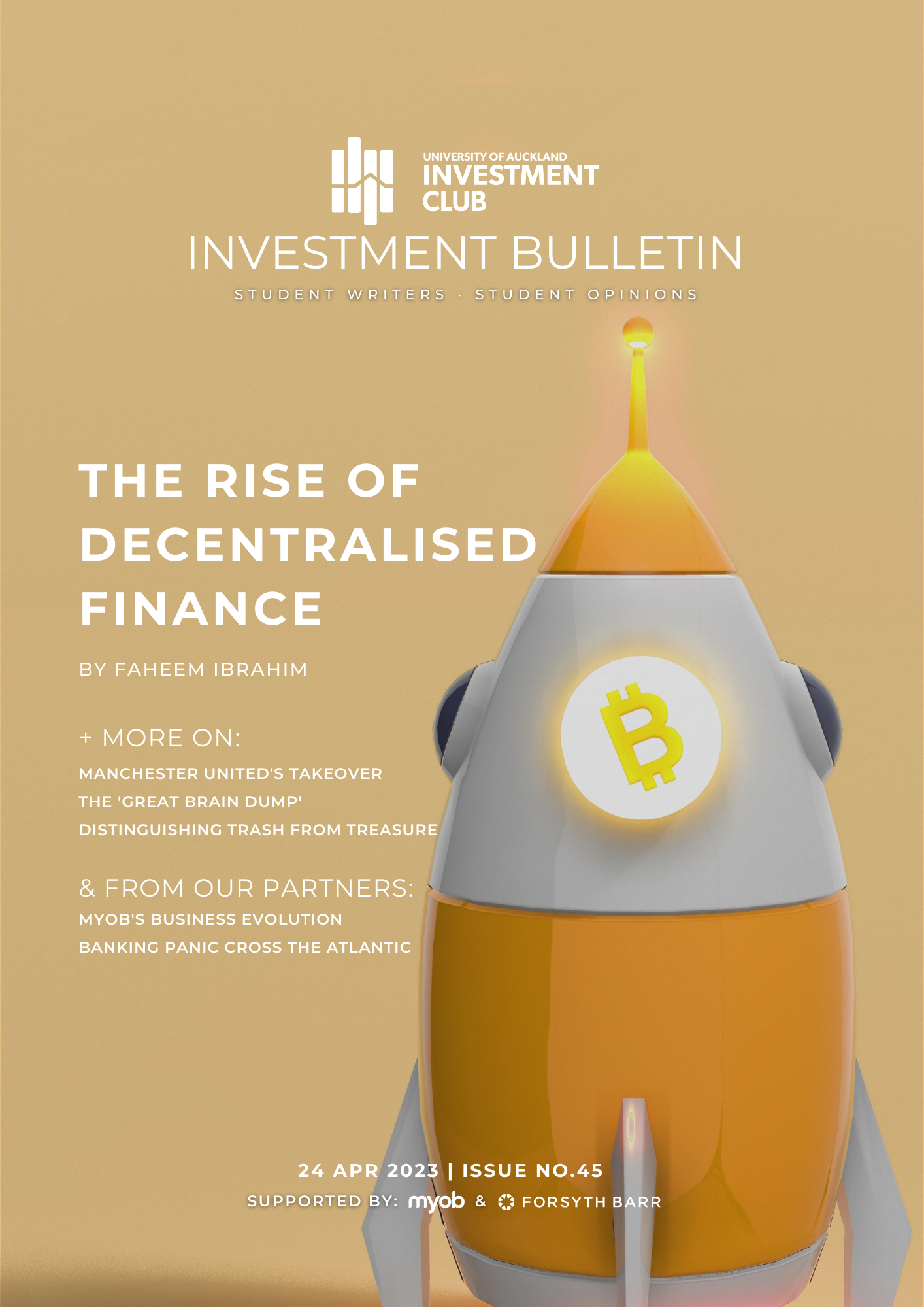Technology
The rise of Decentralised Finance
BY FAHEEM IBRAHIM
The world of finance has undergone significant changes recently, with decentralised finance (DeFi) growing in popularity. DeFi is a new way of doing finance that's based on blockchain technology, which lets people do things like lending, borrowing, and trading without having to go through traditional banks. DeFi’s growth has caused headaches for regulatory bodies in the banking sector
DeFi emerged as a result of digital assets such as Bitcoin and Ethereum. These pioneering cryptocurrencies introduced the concept of financial instruments that operate independently of a central governing body. DeFi takes this idea even further by creating financial services on top of blockchain technology. Smart contracts, which are like digital agreements that run themselves, are the main building block of DeFi and make transactions super transparent.
DeFi has grown rapidly in the last few years. In February 2023, more than $50 billion was locked up in DeFi platforms according to Bitcoin.com, showing just how big this new way of doing finance could become.
A significant impact of DeFi on banks is the heightened competition it introduces within the financial sector. DeFi platforms offer a lot of the same services that banks do, like lending and asset management, but they can also offer better interest rates on savings and lower fees on transactions.
It is understandable why DeFi is an attractive prospect for users. Because of this, banks have to figure out how to adapt to a world where the financial landscape is always changing. Banks need to come up with new ideas and figure out how to use blockchain technology and DeFi in their own systems.
This could lead to new types of finance models that mix the best parts of DeFi and traditional banking. For example, banks might start using smart contracts for things like trade finance and sending money abroad, which could make those processes faster and transparent.
Regulatory bodies are still struggling with how to best regulate DeFi. This can be viewed positively or negatively by banks. On one hand, banks can use this uncertainty to their advantage by promoting themselves as trustworthy and regulated alternatives. However, as governments begin to establish regulations surrounding DeFi, banks may face increased scrutiny and need to follow new regulations.
DeFi holds the potential to increase accessibility to financial services for everyone, particularly in developing countries where many individuals lack access to traditional banks. The high costs of establishing physical branches and inadequate infrastructure have made it difficult for traditional banks to serve these populations.
However, DeFi platforms, with their decentralised nature and internet-based operations, can operate at lower costs and reach a broader audience. This situation presents both challenges and opportunities for traditional banks. They may need to leverage DeFi technology to enhance the accessibility and affordability of their services. By collaborating with DeFi platforms or even developing their own DeFi solutions, banks can maintain relevance and attract customers.
In conclusion, DeFi is causing a big shift in finance, and banks need to be proactive to stay ahead in the game. If banks can work together with DeFi platforms, they might be able to create new financial services that combine the best of both worlds. This could make finance more efficient, transparent, and available to everyone, which would be good for both consumers and businesses.
By embracing the opportunities that DeFi offers and addressing the challenges it brings, banks can make sure they remain at the forefront of the financial services industry in the years to come. By being open to change and collaborating with DeFi platforms, banks can continue to play a major role in the ever-evolving world of finance, benefiting both themselves and the people they serve.
The rise of DeFi is an exciting development, and it'll be interesting to see how traditional banks and the financial landscape continue to adapt and grow alongside it.
FEATURED IN:




